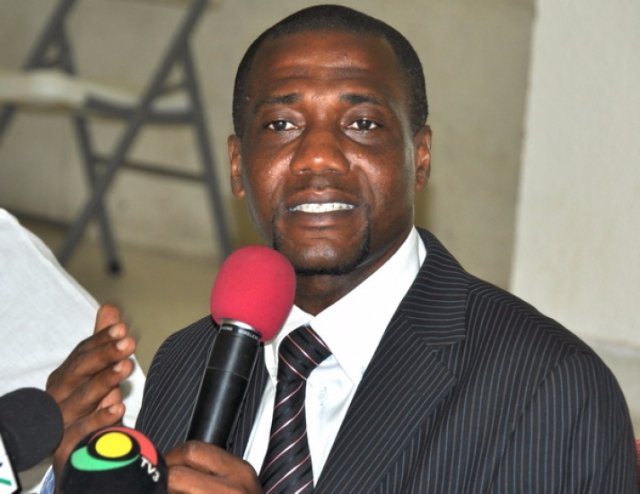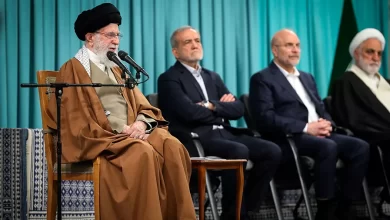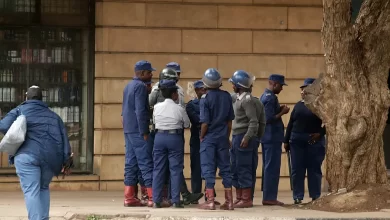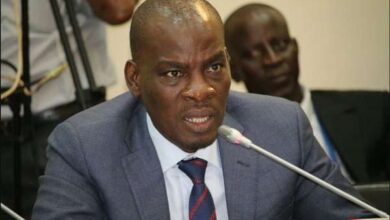Independent Presidential Candidate Jacob Osei Yeboah says no Ghanaian deserves to die for a politician as Ghanaians start the December 7 general elections with Special Voting Thursday.
He drew the loudest applause from the audience when he said “for the seven of us I would rather wish that the seven of us should be killed and the nation have peace rather than the nation destroyed”.
A male candidate is heard responding ‘we are not ready to die’. Jacob said if the presidential candidates are afraid of death then they must work for peace at all cost.
He was speaking at the Accra Peace Accord was organised by the Commonwealth Observer Mission headed by the former South Africa President Thabo Mbeki where the Presidential Candidates of all the political parties in the election committed to peace.
At the ceremony Thursday held at the Movenpick Hotel was well attended by the international community and included the ECOWAS chair and Liberian President Ellen Johnson Sirleaf, the Special Representative of the United Nations Secretary-General for West Africa and the Sahel (UNOWAS), Dr Mohammed Ibn Chambas and the Deputy Commonwealth Secretary-General Madame Josephine Ojiambo.
Making a strong case for peace, Mr Yeboah also know as JOY said democracy does not start with political parties but with a respect for each Ghanaian’s fundamental human rights.
“Democracy does not mean governing with lawless political parties” he stressed.
Given his understanding of democracy, he told the high-powered international presence that “democracy is a war of ideas fought through the rule of law”.
He decried the tendency of politicians to seek undue political advantage by exploiting the electoral system. He condemned a culture of impunity and the bastardization of chiefs, clergy, and clerics who speak on political matters.
“There is a Goliath that all of us are facing and that Goliath is the political parties,” he said.
Following the banning of vigilante groups by the police, JOY observed that political parties are now using political health walk to intimidate their opponents.
“That is why the independent presidential system is actually the solution to this apprehension,” he campaigned.
The independent presidential candidate condemned politicians for exploiting undercurrents of ethnocentrism for electoral advantage.
“Our ethnicity which sometimes the political parties capitalise on, it is a latent polarisation and when you bring the partisanship and ethnicity it is just like petrol and fire,” he noted.
He warned against complacency after organising six successful elections, pointing to examples in Kenya and Ivory Coast.
He said during Ghana’s dark days of military rule, Kenya was used as a shining example of peace and democracy in Africa just as Ivory Coast had enjoyed political stability since independence until two civil wars in 2002 and 2007 and 2011 tore the country apart.
In March 2011, military conflict between forces loyal to Laurent Gbagbo, the President of Ivory Coast since 2000, and supporters of the internationally recognised president-elect Alassane Ouattara.
He said the political leaders Alassane Ouattara and Laurent Gbagbo are alive yet several of their supporters have perished fighting for the political ambition of these two leaders.
He urged Ghanaians to go the Benin way where voters rejected candidates from established political parties and voted for an independent presidential candidate and businessman Yaya Boni.
Boni stood as one of 26 candidates in the March 2006 presidential election. The sitting president, Mathieu Kerekou, had been a dominant force in the politics of the country since the early 1970s and there were serious doubts about him agreeing to allow a transition of power.
Boni surprised many by earning 35.8% of the vote in the first round as an independent candidate. In the runoff between Boni and Houngbédji on 19 March 2006, Boni won with almost 75 percent of the vote. He took office on 6 April 2006.
Source: myjoyonline





